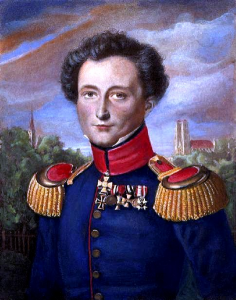Carl von Clausewitz, Prussian General, famed war theorist, member of the OQBLRC (Often Quoted But Little Read Club), and author of On War makes this statement in Chapter 3 of On War:
“Our knowledge of circumstances has increased, but our uncertainty, instead of having diminished, has only increased. The reason of this is, that we do not gain all our experience at once, but by degrees; so our determinations continue to be assailed incessantly by fresh experience; and the mind, if we may use the expression, must always be under arms.”
Sounds a little bit like what we are trying to do today with information security and risk management, doesn’t it? In spite of massive amounts of information, we actually have more uncertainty. We’re less well-positioned to make good decisions and we’re less confident when we make those decisions.
In information security and risk management, we are constantly learning. While there is some common ground over time, this year is different from last year, this month is different from last month. There are relentlessly new attack techniques, new tools, new players, new alliances, new motivations, new targets, and new vulnerabilities. We are in the position of perpetual learning. In Clausewitz’ words, “we do not gain all our experience at once … [we] are assailed incessantly by fresh experience.” While a different context, I think we can heed Clausewitz’ advice that “the mind … must always be under arms” in our modern cybersecurity environment.
However, not to despair …
Reason for hope #1 — leadership & coup d’oeil
If we can extend the metaphor of kinetic battle a little bit further, Clausewitz tells us that, in the middle of the fur ball of confusion and uncertainty, there are moments of brief understanding of the greater gestalt, though, and that these moments are stepping stones to truth that can guide us in decision making. This has been called coup d’oeil by the French, Napoleon among others, — “There is a gift of being able to see at a glance the possibilities offered by the terrain…One can call it the coup d’œil militaire and it is inborn in great generals.”
I don’t know that we have ‘great generals’ in cyberwarfare, privacy, and business security yet, but I believe that this metaphor suggests that there could be. These are the few that simultaneously see more deeply, more broadly and are resolute in their decisions. Which brings us to ‘resolution’…
Reason for hope #2 — leadership and resolution
Clausewitz says that resolution is what removes “torments of doubt and the dangers of delay when there are no sufficient motives for guidance.” For those of us in the business of information security and managing risk, that is akin to acting with intention even while knowing that we have incomplete information. And we always have incomplete information. However, what often happens in the presence of partial information and the uncertainty that it generates, is that no action is taken or undirected action is taken.
Clausewitz is saying that having that capacity for coup d’oeil — that fleeting glimpse of the comprehensive picture — the great generals then act with intention and resolution to effect their purpose.
Maybe that will be the same with cybersecurity as well, that great generals and leadership will make the difference.
[Image: WikiCommons]

